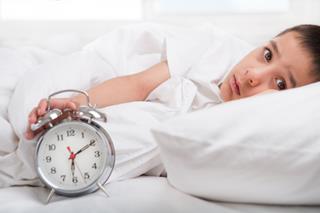Insomnia can make adults feel tired and frustrated, but it can be even more devastating and problematic in children. Many people do not know but insomnia can affect children as well, and when it does, it is important for parents to seek immediate medical assistance. The most important thing here is to identify symptoms of insomnia in children. It can be challenging because children can have different sleep patterns, but it is still essential to confirm if your child is getting enough sleep or not.

Signs Your Children Are Suffering from Insomnia
Difficulty falling asleep is the obvious sign of insomnia that is common in children and adults. It is also possible to find it difficult to stay asleep. Tossing and turning for so many hours, lying awake in the bed, or waking suddenly are all symptoms of insomnia in children.
In children, you may notice some other signs as well. For instance, your child may be sleepy during the day and feel tensed about going to bed. Children with insomnia may have school or disciplinary problems, depression, mood swings, hyperactivity, decreased attention span, and memory problems. Aggression and making errors are other common symptoms.
What Are the Possible Causes?
In order to treat the issue, it is important to identify the underlying cause first. Here are some possible causes of insomnia in children.
- Stress: Many people do not realize that stress can affect kids too. Even toddlers who have started playschool may find it difficult to adapt to these new changes and feel stressed out. Other factors such as the arrival of a new sibling, moving and shifting, illness of a family member, death in the family, or financial problems of parents can cause stress in kids and lead to sleep difficulties.
- Environmental Conditions: Not getting a comfortable atmosphere to sleep can also affect kids and toddlers to sleep well. Some common problems are related to light conditions, noise, heat, and tough mattresses. Many environmental factors may also cause sleep difficulties.
- Medical Conditions: Certain medical conditions, such as stuffy nose, asthma, and skin allergies can affect the sleep quality in children. Other health problems like heartburn, growing pains, muscle cramps, fibromyalgia, etc., may also be responsible for insomnia in children. Taking medications to resolve these issues may also be responsible for causing sleep difficulties.
- Other Factors: Overconsumption of fizzy drinks, clear soda, and caffeinated drinks can also cause insomnia in young kids.
How to Help Your Children
Depending on what causes sleep difficulties in the first place, your doctor may help determine a specific treatment option to treat insomnia in children. Here are some options:
- Practice good sleep hygiene habits. In most cases, you get good results simply by helping your young child develop good sleep hygiene habits. Ensure that they maintain a regular sleep schedule, do not take caffeinated drinks before going to bed, avoid washing TV too close to bedtime, do nothing other than sleeping when in bed, and avoid using electronic devices before going to bed.
- Improve sleep environment. It is also important to ensure that there are no distractions in your child's bedroom. Ensure the bedroom is quiet, dark, and comfortable, with temperature less than 75F. The night ambience of the entire house should be calm and relaxed to make it easier for your child to sleep.
- Help children learn how to relax. You can teach your children about positive mental imagery while in bed, deep breathing, and other relaxation techniques to help fall asleep with ease. This will also help them manage stress better even when they are grown up.
- Consider removing any clock from the bedroom. It is important because your child may continue to look at the clock while trying to sleep and feel more stressed after finding out that they have been trying to sleep for the last couple of hours or so. This anxiety can make it even difficult to fall asleep.
- Set a time to go to bed at night. It is important to set a time when your child should go to sleep. It is important to follow the same routine on weekends. Ensure that you select a routine that helps your child get at least 9 hours of sleep per night. Keep in mind that if your children are between 6 and 12 years of age, they may need up to 11 hours of sleep a night. So, set bedtime accordingly.
- Tell them to get out of the bed when they find it difficult to sleep. Just like adults, kids can also get up out of bed when it is difficult to sleep. It is always better to engage in a calm activity for a few minutes than tossing and turning in the bed. You should help your child here and tell them what they can do when they find it difficult to sleep. But ensure that they select a calm activity only and return to bed in 15-20 minutes.
- Take advantage of behavioral therapy. In case of any behavioral problem, you may consider talking to a specialist to help your child with behavioral or cognitive therapy. These methods do not use drugs and help you and your child with some psychological methods to sleep better.
- Talk to your doctor about medications. It is important to understand that medications are usually not prescribed for children with insomnia, but your doctor may prescribe something in special circumstances. Therefore, it is a good idea to talk to your doctor and never give anything to your child unless your doctor has recommended it.
